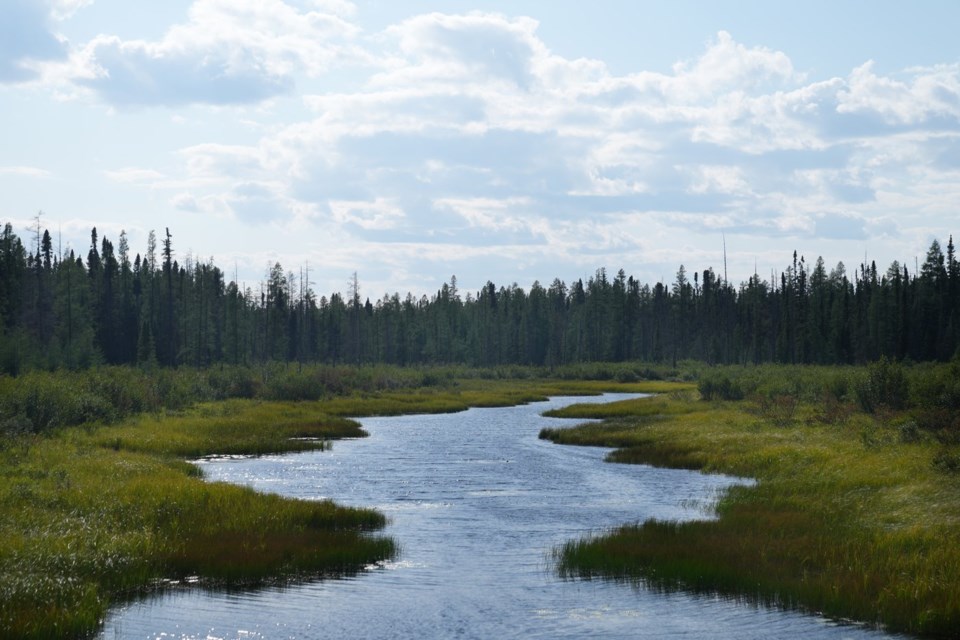TORONTO — Proposed Ontario legislation that would give cabinet power to create "special economic zones" and allow the government to exempt itself from following laws on certain projects is little more than a power grab, First Nations, civil liberty groups and environmentalists say.
Critics say the bill, known as the Protect Ontario by Unleashing our Economy Act, is designed to ensure projects such as Premier Doug Ford's proposed tunnel under Highway 401 and critical mineral mining in northern Ontario get done with little resistance.
Ford pointed to both projects as examples of regions that could be designated as special economic zones once the law is passed.
Ford has long envisioned mining the Ring of Fire, an area that is said to be rich with critical minerals, then refining and shipping those materials to southern Ontario to be used in the burgeoning electric-vehicle battery sector.
On Tuesday, the premier outlined how important the region is for his government.
"The Ring of Fire is our No. 1 priority over anything, because that's going to generate more revenues, and if we get shovels in the ground, get permits in less than two years, and then we can sell those critical minerals to everyone in the world that needs those critical minerals," he said.
"We can be the wealthiest, richest, most prosperous sub-sovereign nation anywhere in the world if we get those critical minerals out of the ground."
Several First Nation leaders from the Ring of Fire region visited Queen's Park on Monday and said they have yet to be consulted on the bill, despite pledges from the province that it would fulfil its duty to consult.
Grand Chief Alvin Fiddler of Nishnawbe Aski Nation, which represents 49 First Nations whose territories cover two-thirds of Ontario, said he wants Ford to sit down with First Nation chiefs soon to discuss the proposed law.
"We have fresh water, we have trees, we have the second-largest carbon sink in the world and we have minerals that are rich," Fiddler said.
"But we've also learned some very painful lessons in the past that in order for us to meaningfully benefit from these resources, we need to do it right."
Fiddler warned Ford of problems should the bill be passed with no changes.
"If Premier Doug Ford thinks that he can create a piece of legislation that will allow him to do whatever he wants to do in our territory, he is wrong," Fiddler said. "He cannot just jump on a tractor and drive up there. We will stop it. Our people will stop it and we will make sure we do things our own way, that our own laws are respected, that our resources are respected, that our water is respected."
Grand Chief Leo Friday of the Mushkegowuk Council, which represents seven First Nations on the James Bay coast and inland, said he was "pretty sad" to see the legislation tabled.
"I'm very scared to see this," he said. "Our people said, if we're not involved in the exploration or in the development of our land ... many of us will die."
Fiddler said First Nations, which are facing overlapping crises tied to mental health, drug use, housing and unsafe drinking water, are not opposed to development and economic prosperity.
"We want the economic progress more than anyone. We need it," Fiddler said. "So we want economic prosperity. It's the how. We cannot afford to have Doug Ford dictate that to us through this piece of legislation."
The Canadian Civil Liberties Association also voiced its concerns about the bill, saying the section to create special economic zones should be tossed out completely.
The bill calls for "trusted proponents" and "designated projects" within the special economic zones to be exempt from having to comply with all provincial and municipal laws, which the organization said is concerning.
"This alarming move enables the executive branch of the government to unilaterally do away with legal safeguards that protect vulnerable communities and Indigenous people, paving the way for corporations to bypass labour and environmental laws," said Anaïs Bussières McNicoll, the association's director of fundamental freedoms.
Energy and Mines Minister Stephen Lecce defended the creation of special economic zones.
He pointed out that the Progressive Conservatives recently won a majority election victory after a campaign in which they pledged to speed up mining development, saying it shows that Ontarians agree with the party's approach.
"I think there's an increasing consensus in the country that we want to realize our potential create jobs and position Canada as a clean energy superpower," he said.
He said the environment and relations with First Nation communities remain crucial components of the bill.
"We also maintain protections for the environment and fulfil our duty to consult – I think we found that balance," he said.
Sol Mamakwa, the New Democrat who represents the riding of Kiiwetinoong where the Ring of Fire is located, said the province continues to do the bare minimum on consulting with First Nations.
"This bill, to me, is like Ontario First, First Nation last," he said.
Environmentalists have already called out the Ford government over the environmental protections the province intends to strip away through the bill, which includes repealing the Endangered Species Act.
The government wants to dramatically narrow the definition of what habitat means and do away with requirements to create a strategy for how to recover at-risk species. With the bill, it also appears to give itself greater power over an independent science-based committee to add and remove species from a protected list.
The legislation passed second reading Tuesday and was sent to committee to be studied further.
The province has given stakeholders two days of hearings, said Mamakwa, who is on the committee.
This report by The Canadian Press was first published May 6, 2025.
Liam Casey, The Canadian Press




